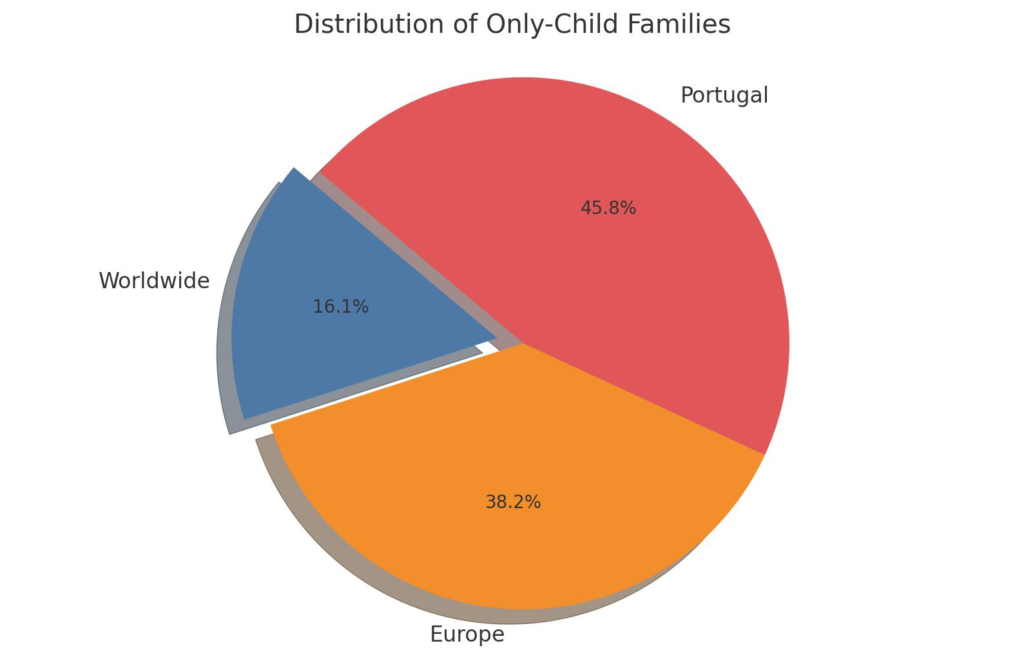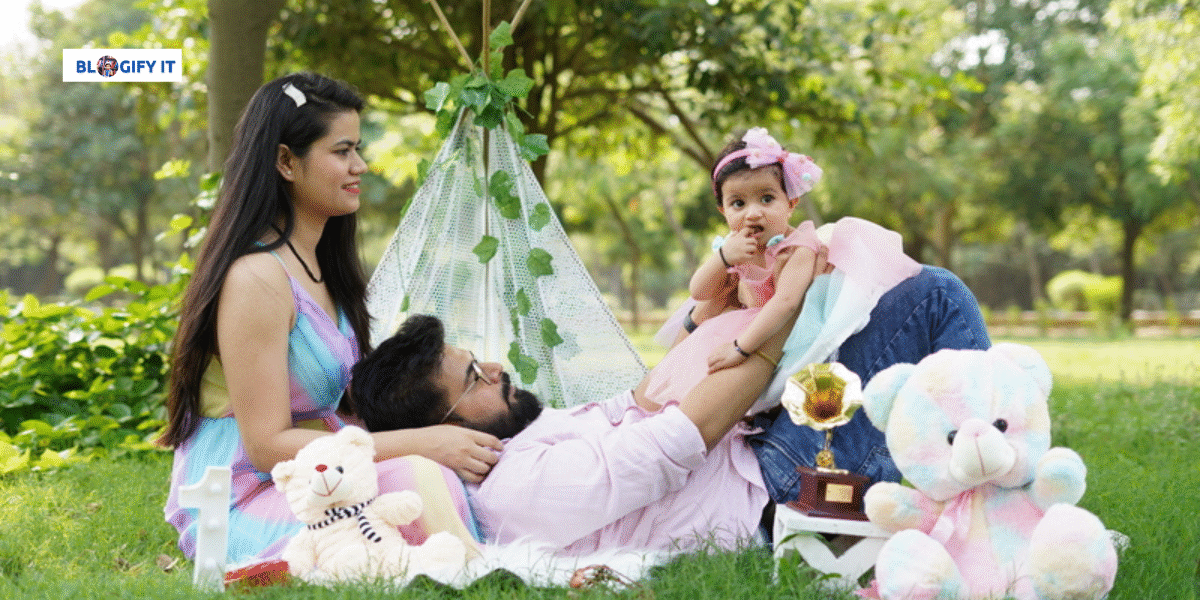The decision to expand your family from one child to two is never easy. It’s one of those thoughts that stays in the back of your mind, quietly popping up every now and then. While your first child fills your life with more love than you could ever imagine, the question remains: Should we have another?
The dilemma of single child vs two child is something almost every parent goes through at some point. Some say one is enough, others say siblings make life more meaningful. But as I’ve learned through my own journey, there’s no single “right” answer — only what’s right for your family.
In this guide, I’ll walk you through the pros and cons of both choices — and also share my honest thoughts and experiences as a mother trying to make peace with this decision myself.
My Personal Journey: From Wanting Two to Rethinking Everything
I always imagined myself having two kids. I come from a family where siblings were each other’s first friends, and I wanted my child to experience that same bond. But once I actually became a mother, my perspective started to change.
After my first baby was born, I realized how demanding and exhausting parenting can be — especially in a nuclear family setup. There’s no one to share the load, no one to take over when you’re physically or emotionally drained. You’re managing the house, your job, your relationship, and a tiny human who depends on you for everything. It’s beautiful, but it’s also unbelievably hard.
That’s when I understood something very important — you can think of having a second child only when you have enough support — emotionally, financially, and physically.
If you have family around to help, like your mother-in-law or parents, or if you can afford a good nanny or daycare, it makes a big difference. But if you’re managing everything on your own, it’s okay to take your time to decide.
I often remind myself — “Don’t do it because others say so.” Do it only if you genuinely want another child and are ready to give both children the love and attention they deserve.
Pros and Cons of One Child
The trend of smaller families is rising all around the world. Europe is leading the way in having smaller families. Almost half of all families there have just one child, showing how family size is changing across the continent.

The number of families with just one child is increasing, and experts think there will be many more in the U.S. by 2050. However, having a single child is a decision that comes with its own set of pros and cons. Here are some of them:
Benefits of Having One Child:
1. Undivided Parental Focus
Dr. Newmann, a child psychologist, says, “Only children benefit from their parents’ concentrated love and care…”
With one child, all your love, time, and energy are centered on them. You can be fully present — attend every school event, listen to every story, and notice every little change. I’ve seen this with my daughter. Every milestone she achieves feels like our victory.
I can sit with her, read books, or simply talk for hours without feeling pulled in another direction. This undivided focus often helps children grow up feeling secure, confident, and deeply connected to their parents.
2. Strong Parent-Child Bond
When there’s only one child, the bond often feels deeper. You understand each other’s moods, likes, and dislikes. As your child grows older, that closeness turns into friendship. You don’t have to divide your time or attention, which can make your relationship more open and emotionally fulfilling.
3. Easier Financial and Emotional Management
Raising children today is expensive and time-consuming. From quality education to healthcare and extracurricular activities, every decision carries a cost. With one child, you can manage these expenses more comfortably and still have room for family vacations or personal savings. Emotionally too, it’s easier to manage one child’s needs at a time without feeling constantly stretched thin.
4. Greater Independence for Parents
Having one child allows parents to maintain some balance between family and personal life. You can still pursue your career, travel, or have some quiet time for yourself without feeling guilty.
Only children often get really good at entertaining themselves. They might dive deep into hobbies that need quiet time, like reading a book, painting for hours, playing with toys, or practicing an instrument. They don’t have siblings interrupting them, so they can really focus on these solo pursuits.
5. Child Learns to Be Independent
Only children often learn to entertain themselves, think independently, and spend time alone without feeling bored. They may become more mature for their age and develop strong creative or intellectual skills.
6. Good at Making Friends
Since they don’t have built-in playmates at home, only children often put more effort into making friends outside the family. They might be more outgoing or work harder at keeping friendships since these relationships are extra important to them.
7. Do Well in School
With all the family’s resources focused on one child, there’s often more support for their education. Parents can afford more books, trips, or tutoring if needed. They also have more time to help with homework or attend school events, which can boost the child’s academic performance.
Drawbacks of Having One Child:
1. Risk of Being Spoiled
When there’s only one child, it’s tempting to give them everything they want. This can lead to a kid who expects to always get their way, which doesn’t prepare them well for the real world, where we can’t always have everything we want.
2. Might Become Arrogant
If a child is constantly told they’re amazing and never face competition at home, they might develop an inflated sense of self-importance. This can make it hard for them to empathize with others or handle criticism later in life.
3. Scared to Try New Things
Some parents of only children are super protective, shielding their kids from any possible failure. While this comes from love, it can backfire. The child might become afraid to try new things because they’ve never learned how to cope with failing or making mistakes.
4. Pressure from Parents
With just one shot at parenting, some moms and dads pile all their dreams and expectations onto their only child. This can create a lot of stress for the kid, who might feel like they always need to be perfect to make their parents happy.
5. Might Rebel
If parents are too controlling with their only child, it can lead to pushback. As the child grows up, especially in the teenage years, they might rebel hard against their parents’ rules, trying to assert their independence in sometimes extreme ways.
6. Only Child to Take Care of Aging Parents
As parents get older, the responsibility of caring for them falls entirely on the only child. There are no siblings to share the emotional, physical, or financial load of eldercare, which can be really challenging.
7. Fewer Chances to Socialize
Brothers and sisters are like a built-in training ground for social skills. Only children miss out on daily lessons in sharing, compromise, and conflict resolution that happen naturally in bigger families. This doesn’t mean they can’t learn these skills, but they might have to work harder.
8. Loneliness
Without a sibling, some children may feel lonely or crave a constant playmate. Parents often become their only companions, which can be emotionally draining for both sides.
Remember, every family is unique. These points are general trends, not hard and fast rules. The most important thing is the love and care you give your child, no matter how many kids you have.
Pros and Cons of Two Children
For many families, having two kids vs one feels like completing the circle — giving your first child a lifelong friend and sharing your love between two hearts. But it’s not always as simple as it sounds.
Pros of Having Two Children
1. Experience Makes You Calmer
By the time your second child arrives, you’re no longer a first-time parent. You know what to expect — from sleepless nights to baby milestones. You become more relaxed and confident in your parenting choices. The second time around, you don’t panic over every fever or cry. You trust your instincts more.
2. Built-In Playmate
This is perhaps the biggest advantage. Siblings have each other for company. They play, fight, laugh, and learn together. These interactions teach them sharing, teamwork, and conflict resolution naturally.
I’ve often heard a beautiful saying —
“The first child is for the parents, and the second child is for the first child.”
There’s so much truth in that. Siblings give each other the kind of companionship no friend can replace.
3. Shared Toys, Clothes, and Love
Having a second child can also be practical. You already have baby gear, clothes, and toys, so you know what’s essential and what’s not. You also become smarter about spending — fewer unnecessary purchases and better planning.
4. Family Feels Fuller
With two children, there’s constant activity, laughter, and conversation. Yes, it can get chaotic, but it’s the kind of chaos that fills the house with energy and love.
Cons of Having Two Children
1. Pregnancy Is Harder with a Toddler
Being pregnant while taking care of a toddler can be exhausting. You’re already dealing with the physical demands of pregnancy, and on top of that, you have to keep up with a toddler who needs constant attention and care. Simple tasks can become tiring, and you might wish for more rest.
2. Less Alone Time
Alone time becomes a rare commodity when you have two children. Finding a babysitter willing to watch both kids is more challenging, and even family members might find it more difficult. This means you’ll have fewer opportunities to go out without the kids or enjoy quiet time alone.
3. Double the Costs
Two children mean doubling up on many expenses. You’ll need more food, clothes, and other essentials. Outings can become more expensive because you’ll need to buy two of everything, from souvenirs to admission tickets. This can strain your budget and require more careful financial planning.
4. Sibling Rivalry
Sibling rivalry is a common issue in families with more than one child. Your kids will likely have disagreements and compete for your attention. This can lead to frequent arguments and tension, which can be stressful for you as a parent to manage.
5. Pulled in All Directions
With two children, you’ll often feel like you’re being pulled in multiple directions at once. Each child has their own needs and demands, and you’ll have to juggle them constantly. This can leave you feeling like you never have a moment to yourself and can be quite draining physically and emotionally.
My Honest Thoughts
I’m still in the process of thinking about having a second child. I get suggestions all the time — people saying, “Don’t delay too much” or “Your child needs a sibling.” But I’ve learned to take my time.
Having a second child is not just about age gaps or societal pressure — it’s about your emotional readiness, financial situation, and support system.
If you have help — a nanny, family nearby, or a partner who shares responsibilities equally — then managing two kids can be incredibly fulfilling. But if you’re doing everything alone, even one child is a full-time job, and that’s perfectly okay.
At the end of the day, whether you have one child or two, what matters most is the love and attention you give them. Parenting is not about numbers; it’s about nurturing happy, emotionally healthy children.
Final Words
So, is it better to have 1 or 2 kids? There’s no universal answer. Each family is different.
For some, a single child brings balance and peace. For others, two children bring laughter and a deeper sense of togetherness.
In my case, the decision is still evolving. I’ve learned that you don’t need to rush. You’ll know when your heart — and your life — are ready for another. Until then, cherish the moments you have with your first, because every phase of motherhood is special in its own way.




